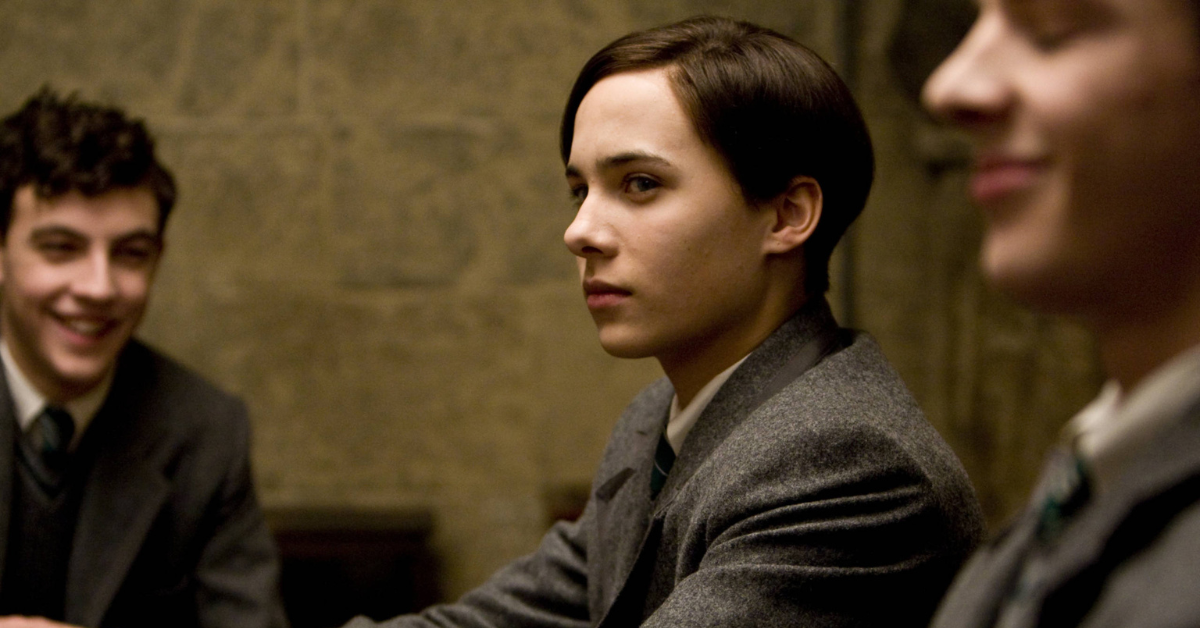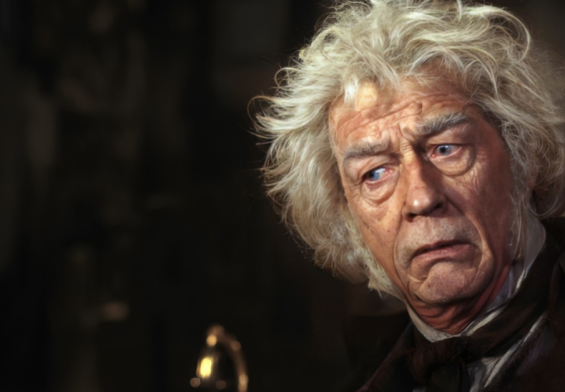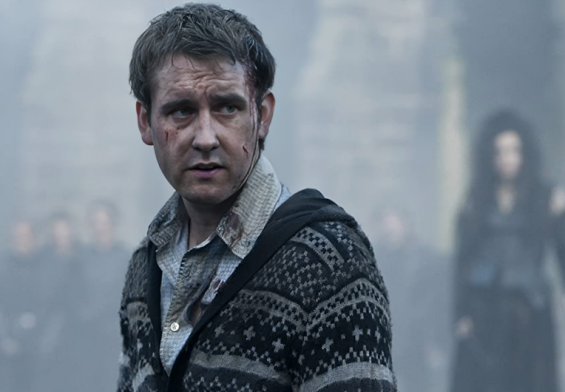
Did you know, sir, then?
Did I know that I had just met the most dangerous dark wizard of all time? No.
These were the words exchanged by Harry Potter and Albus Dumbledore after taking a glance into the Pensieve and observing Dumbledore’s first encounter with a young Tom Riddle.
Recommended for You:- 5 Harry Potter Characters That Are Totally Different from Their Book Versions!
- Why Avada Kedavra is the Most Feared Spell!
- Why Aren’t the Hogwarts Mascots MAGICAL Creatures
- What REALLY Happens to Your Soul after a Dementor’s Kiss
Dumbledore’s Decision
It’s these words that clarify why Dumbledore saved Tom, invited him to Hogwarts, and gave him a magical education. Despite a few signs here and there, Dumbledore could never have known that this young, troubled boy would go on to cause so much death and destruction.
What If Dumbledore Knew?
- How could he have known?
- Would things have been different?
- Would Tom Riddle have attended Hogwarts?
Today, we’re going to answer these questions as we discuss a scenario in which Dumbledore was aware of Voldemort’s true capabilities.
The first encounter between Albus Dumbledore and Tom Riddle was in 1938, when Dumbledore visited Wool’s Orphanage to offer Tom a place at Hogwarts School of Witchcraft and Wizardry.
The Initial Meeting
During their meeting, Dumbledore informed Tom about the existence of the wizarding world and his magical heritage. Tom, who had already sensed his own powers, was intrigued by the prospect of attending Hogwarts.
Tom Riddle’s Dark Nature
At the time, Tom was an eleven-year-old orphan who had exhibited signs of magical abilities but was also known for his manipulative and cruel behavior towards the other children at the orphanage.
On the outside, Tom looked fairly innocuous, but underneath was a brooding dark force that would stop at nothing to cause pain and suffering to others.
Dumbledore’s Caution
This encounter between Dumbledore and Tom Riddle is significant because it marks the beginning of their complex relationship throughout the series. It also highlights Dumbledore’s role in the early life of one of the most dangerous dark wizards in history.
Early Warning Signs
Right from the very beginning, Dumbledore was cautious and wary of the young boy, sensing Tom’s dark nature and potential for evil. Despite all of the warning signs, Dumbledore proceeded to offer Tom a place at Hogwarts, hoping that the new school and environment would help shift Tom’s life in a more positive direction.
Harry’s Insight
All of this is shown to Harry via the Pensieve. The purpose was to give Harry a sense of context for the task that Dumbledore would later give him, and the memories that he would later show him.
He wanted to give Harry an idea of the troubled young boy that Lord Voldemort once was, showing him that Tom Riddle was once a student much like him and how his path of darkness began.
Dumbledore’s Oversight
But my question is, how did Dumbledore, who is led to believe is particularly intelligent and strategic, suffer such a massive oversight in assessing Tom Riddle’s nature? Why didn’t Dumbledore, one of the most powerful wizards of all time, simply strike young Tom Riddle down right there and then, saving countless lives in the process?
The Conversations
The conversations that the pair shared held more than enough clues that Tom was indeed a bad apple.
“What is it that you can do?”
“All sorts,” breathed Riddle. A flush of excitement was rising up his neck into his hollow cheeks. He looked fevered. “I could make things move without touching them.I could make animals do what I want them to do, without training them. I could make bad things happen to people who annoy me. I could make them hurt if I want to.”
His legs were trembling. He stumbled forward and sat down on the bed again, staring at his hands. His head bowed as though in prayer. “I knew I was different,” he whispered to his own quivering fingers. “I knew I was special, always. I knew there was something.”
“Well, you were quite right,” said Dumbledore, who was no longer smiling but watching Riddle intently. “You are a wizard.”
Riddle lifted his head. His face was transfigured. There was a wild happiness upon it, yet for some reason, it did not make him better looking. On the contrary, his finely carved features seemed somehow rougher, his expression almost bestial.
Dumbledore’s Belief in Second Chances
While there were many clues which may have suggested Riddle’s darker nature, we have to remember that Dumbledore was a man who believed in second chances.
Dumbledore himself had made many regrettable decisions in his youth, and so he may have seen this as an opportunity to steer this young boy away from making the same sorts of mistakes that he did.
Lack of Foresight
Dumbledore did not possess the ability to foresee the future. He had his suspicions about Tom, but that’s all they were: suspicions. To kill this young boy over these suspicions would have been ludicrous.
Exploring the Alternative
For today, let’s explore the alternative: Dumbledore kills him.
A Drastic Action
Acting on his suspicions and using the magical art of Legilimency, Dumbledore peels back the layers of Tom Riddle’s mind and discovers what he’s truly capable of.
In a moment of clarity and foresight, he learns of the dark path that lies ahead for Tom and begins to understand the immense danger that Riddle’s manipulative and power-hungry nature poses to the wizarding world.
The Ripple Effect
Faced with this knowledge, Dumbledore contemplates a drastic action that could potentially alter the course of history. Despite grappling with the moral dilemma of taking life, Dumbledore believes that the potential harm inflicted by Riddle’s actions warrants some form of intervention.
Upon realizing that removing Riddle from the equation could prevent countless deaths, Dumbledore toys with the idea of ending this young orphan’s life.
Confronting Tom
After setting foot through the front doors of Wool’s Orphanage, Dumbledore confronts Tom, fully aware of the ancient darkness that lurks within him. Dumbledore wastes no time, immediately raising his wand and only pausing for a second before firing off a killing curse at the young boy.
Monumental Consequences
The ripple effect that this decision would make would be monumental in altering the course of wizarding history. By eliminating Tom Riddle at a young age, Dumbledore would have halted the rise of Voldemort as the dark wizard we now know.
Without Voldemort’s presence, the wizarding world would have been spared from his reign of terror, which caused immense suffering and loss of life.
Rewriting Wizarding History
- No Horcruxes
- No prophecy
- A different life for Harry Potter
- Beloved characters alive
The absence of Voldemort would have rewritten wizarding history. But the impact on Dumbledore would have been significant, and I suspect that he would have never been able to properly explain his actions to the rest of the wizarding world. His decision would forever change his own character and legacy.
Dumbledore’s Crime
Dumbledore would have committed a serious crime by taking the life of a young child, even though it was driven by his knowledge of Riddle’s future as Voldemort. As such, he would have been subject to the law and likely faced imprisonment or trial for murder.
Tarnished Reputation
His actions would have also tarnished his reputation as one of the greatest and most respected wizards of his time.
The knowledge that he killed a child, regardless of the justifications, would have shattered the public’s trust in him, as he would have been seen as someone who takes the law into his own hands. Depending on the outcome of any legal proceedings, Dumbledore could have been sentenced to life in Azkaban.
Accepting His Fate
From the moment he killed Tom, Dumbledore would have accepted his fate. He knew that he’d never be able to explain why he did what he did, so he didn’t try. But he also knew that sacrificing himself for all of those future lives was for the greater good—a philosophy he still hadn’t quite shaken off.
The Rise of Grindelwald
However, by choosing to act on his impulses and kill Tom Riddle, Dumbledore would have unknowingly and inadvertently paved the way for another dark wizard to rise to power: Grindelwald.
Dumbledore’s Defeat of Grindelwald
Dumbledore’s visit to Tom Riddle in Wool’s Orphanage occurred in 1938, prior to Dumbledore’s legendary defeat of the dark wizard Gellert Grindelwald in 1945.
While Dumbledore’s act may have saved countless lives taken by Voldemort, his imprisonment in Azkaban for his crimes would have given Grindelwald the opportunity to take over. Like Voldemort, the only wizard that Grindelwald feared was Dumbledore.
A Darker Future
By killing Tom Riddle as an orphan, the wizarding world would have only succumbed to darkness much sooner, and perhaps in a more concrete manner. From as early as 1938, Grindelwald could have laid his plans in motion and effectively taken over the wizarding world. With Dumbledore in prison, no one could have stopped him.
Releasing a Child Killer?
Even if the Ministry knew that Dumbledore was capable of defeating Grindelwald, why on earth would they make the decision to release an unpredictable child killer? For all they knew, it could have just added more fuel to the fire.
A Lighter Alternative
On a lighter note, one other alternate scenario is that Dumbledore, recognizing Tom’s latent potential for evil, placed him in an environment where he was showered with love. He found him a magical foster family.
Tom Riddle’s Potential for Love
Many fans of the series believe that Tom Riddle, because of his conception under a love potion, was fundamentally incapable of love, but that’s actually a common misconception.
In an interview, J.K. Rowling once revealed that if Merope had survived and been there to give her son love, he still could have had a chance at developing a normal range of emotions.
A Loving Environment
Therefore, had Dumbledore found an appropriate family to look after Riddle during his adolescence, it’s entirely possible that he could have turned out alright.
He still would have gone to Hogwarts, but he no longer would have been alone. He would have always had a place to call home, and he’d have a family to spend the holidays with.
The Possibility of Change
- Could he have still turned out evil?
- Could the damage have already been done during his years at the orphanage?
Absolutely. But I like to think that this could have made a difference.
And that’s it for this theory. What do you think Dumbledore would have done if he had acted on his suspicions of Tom Riddle’s darker nature?



